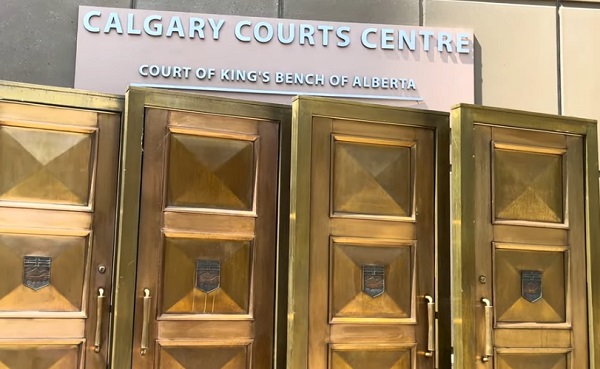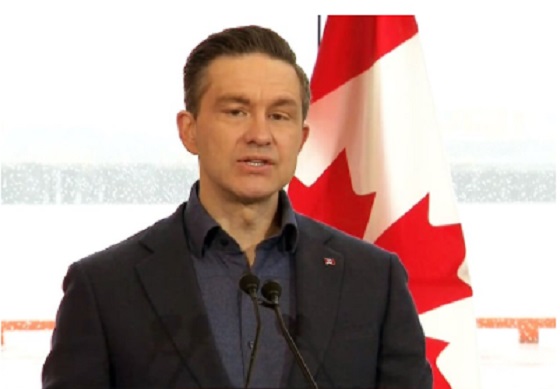Alberta
Lawyers ask Alberta court to allow businesses to seek damages from gov’t for COVID shutdown

From LifeSiteNews
If the case is allowed to proceed, any business operator in Alberta from 2020 to 2022 who was negatively impacted by COVID orders would be eligible to join the lawsuit. Any payout from the lawsuit would come from the taxpayers, which ironically includes the business owners themselves.
Alberta business owners who faced massive losses or permanent closures due to COVID mandates might soon be able to proceed with a class-action lawsuit against the provincial government after lawyers representing the businesses were in court for a certification hearing.
The court heard from the business group’s lawyers regarding the lawsuit proposal, which comes from Alberta-based Rath & Company. Lead counsel Jeffrey Rath said the Alberta government has been placed on notice for its actions against businesses during the COVID lockdown era.
The Rath lawsuit proposal names Rebecca Ingram, a gym owner, and Chris Scott, a restaurant owner, as “representative plaintiffs who suffered significant financial harm due to (former Alberta Chief Medical Officer) Dr. (Deena) Hinshaw’s Public Health Orders.”
Well-known freedom-oriented constitutional lawyer Eva Chipiuk was with Rath in court for the certification hearing. In an X post on October 3, she shared that it was an “interesting two days in court arguing on behalf of businesses impacted by Alberta’s public health orders.”
“In the heart of democratic societies lies a fundamental principle: Justice must not only be done but must also be seen to be done. When justice systems operate in the open, public trust is maintained. People need to witness fairness, impartiality, and due process in action,” she wrote.
“When governments operate in the light of public scrutiny, they uphold not just the law but the trust of their citizens, ensuring that governance is not just a mechanism of power but a beacon of justice and equality.”
Chipiuk shared that a decision on whether or not the lawsuit will be allowed to proceed will be coming in a few months. She noted it will be “interesting how the judge decides in this case.”
“And will be very interesting how the government responds. They had an opportunity to get ahead of this issue but chose not to. We shall see if they took the right path or if they will be catching up and making up later,” she said.
Alberta Justice Colin Feasby noted at the end of the court certification hearing that both sides made good arguments, but the earliest a decision would be ready is December 1.
In court, representatives for the Alberta government eventually conceded that Ingram could be allowed to be a representative plaintiff but questioned whether Scott could be considering his case is more officially known.
Chipiuk and Rath told the judge that the government’s public health orders exceeded their legal authority and, as a result, all businesses affected by the COVID orders should be compensated.
The government’s legal team claimed that the COVID orders were put in place on a good faith initiative and that it was Alberta Health Services, not the government, that oversaw enforcement of the rules.
If the case is allowed to proceed, any business operator in Alberta from 2020 to 2022 who was negatively impacted by COVID orders would be eligible to join the lawsuit. Any payout from the lawsuit would come from the taxpayers, which ironically includes the business owners themselves.
The Alberta Court of King’s Bench’s Ingram v. Alberta decision put into doubt all cases involving those facing non-criminal COVID-related charges in the province, which in effect has allowed the class action to get this far.
As a result of the court ruling, Alberta Crown Prosecutions Service (ACPS) said Albertans facing COVID-related charges will not be convicted but instead have their charges stayed.
Thus far, Dr. Michal Princ, pizzeria owner Jesse Johnson, Scott, and Alberta pastors James Coates, Tim Stephens, and Artur Pawlowski, who were jailed for keeping churches open under then-Premier Jason Kenney, have had COVID charges against them dropped due to the court ruling.
Under Kenney, thousands of businesses, notably restaurants and small shops, were negatively impacted by severe COVID restrictions, mostly in 2020-21, that forced them to close for a time. Many never reopened. At the same time, as in the rest of Canada, big box stores were allowed to operate unimpeded.
Class action is about ‘accountability, transparency, and justice,’ lawyer says
Before the hearing, Chipiuk said it is crucial for the public to “understand the significant impact of the unlawful public health orders on Albertans. The financial, psychological, and tragic consequences cannot be ignored.”
“At the end of the day, Premier Smith must recognize the gravity and optics of this situation. Fighting against those harmed by the Province’s unlawful orders, while the Province heavily favored the public sector over the private sector, does not foster an environment that encourages entrepreneurs or promotes business and investment in Alberta,” she wrote on X.
“This case calls for accountability, transparency, and justice. The Province must acknowledge the devastation caused by its illegal actions and stop evading responsibility. This case also presents an opportunity for Premier Smith to demonstrate to Albertans that government overreach will not go unnoticed, and those harmed by it will be compensated — principles that align with the proposed amendments to the Alberta Bill of Rights.”
Danielle Smith took over the United Conservative Party (UCP) on October 11, 2022, after winning the leadership. Kenney was ousted due to low approval ratings and for reneging on promises not to lock Alberta down as well as enacting a vaccine passport.
Smith, however, has been mum on the class action as well as other lawsuits against the government that are in the works. She has promised that changes will be coming to the Alberta Bill of Rights that she said will offer Albertans more protections against government overreach.
Alberta
Alberta takes big step towards shorter wait times and higher quality health care

From the Fraser Institute
On Monday, the Smith government announced that beginning next year it will change the way it funds surgeries in Alberta. This is a big step towards unlocking the ability of Alberta’s health-care system to provide more, better and faster services for the same or possibly fewer dollars.
To understand the significance of this change, you must understand the consequences of the current (and outdated) approach.
Currently, the Alberta government pays a lump sum of money to hospitals each year. Consequently, hospitals perceive patients as a drain on their budgets. From the hospital’s perspective, there’s little financial incentive to serve more patients, operate more efficiently and provide superior quality services.
Consider what would happen if your local grocery store received a giant bag of money each year to feed people. The number of items would quickly decline to whatever was most convenient for the store to provide. (Have a favourite cereal? Too bad.) Store hours would become less convenient for customers, alongside a general decline in overall service. This type of grocery store, like an Alberta hospital, is actually financially better off (that is, it saves money) if you go elsewhere.
The Smith government plans to flip this entire system on its head, to the benefit of patients and taxpayers. Instead of handing out bags of money each year to providers, the new system—known as “activity-based funding”—will pay health-care providers for each patient they treat, based on the patient’s particular condition and important factors that may add complexity or cost to their care.
This turns patients from a drain on budgets into a source of additional revenue. The result, as has been demonstrated in other universal health-care systems worldwide, is more services delivered using existing health-care infrastructure, lower wait times, improved quality of care, improved access to medical technologies, and less waste.
In other words, Albertans will receive far better value from their health-care system, which is currently among the most expensive in the world. And relief can’t come soon enough—for example, last year in Alberta the median wait time for orthopedic surgeries including hip and knee replacements was 66.8 weeks.
The naysayers argue this approach will undermine the province’s universal system and hurt patients. But by allowing a spectrum of providers to compete for the delivery of quality care, Alberta will follow the lead of other more successful universal health-care systems in countries such as Australia, Germany, the Netherlands and Switzerland and create greater accountability for hospitals and other health-care providers. Taxpayers will get a much better picture of what they’re paying for and how much they pay.
Again, Alberta is not exploring an untested policy. Almost every other developed country with universal health care uses some form of “activity-based funding” for hospital and surgical care. And remember, we already spend more on health care than our counterparts in nearly all of these countries yet endure longer wait times and poorer access to services generally, in part because of how we pay for surgical care.
While the devil is always in the details, and while it’s still possible for the Alberta government to get this wrong, Monday’s announcement is a big step in the right direction. A funding model that puts patients first will get Albertans more of the high-quality health care they already pay for in a timelier fashion. And provide to other provinces an example of bold health-care reform.
Alberta
Alberta’s embrace of activity-based funding is great news for patients

 From the Montreal Economic Institute
From the Montreal Economic Institute
Alberta’s move to fund acute care services through activity-based funding follows best practices internationally, points out an MEI researcher following an announcement made by Premier Danielle Smith earlier today.
“For too long, the way hospitals were funded in Alberta incentivized treating fewer patients, contributing to our long wait times,” explains Krystle Wittevrongel, director of research at the MEI. “International experience has shown that, with the proper funding models in place, health systems become more efficient to the benefit of patients.”
Currently, Alberta’s hospitals are financed under a system called “global budgeting.” This involves allocating a pre-set amount of funding to pay for a specific number of services based on previous years’ budgets.
Under the government’s newly proposed funding system, hospitals receive a fixed payment for each treatment delivered.
An Economic Note published by the MEI last year showed that Quebec’s gradual adoption of activity-based funding led to higher productivity and lower costs in the province’s health system.
Notably, the province observed that the per-procedure cost of MRIs fell by four per cent as the number of procedures performed increased by 22 per cent.
In the radiology and oncology sector, it observed productivity increases of 26 per cent while procedure costs decreased by seven per cent.
“Being able to perform more surgeries, at lower costs, and within shorter timelines is exactly what Alberta’s patients need, and Premier Smith understands that,” continued Mrs. Wittevrongel. “Today’s announcement is a good first step, and we look forward to seeing a successful roll-out once appropriate funding levels per procedure are set.”
The governments expects to roll-out this new funding model for select procedures starting in 2026.
* * *
The MEI is an independent public policy think tank with offices in Montreal, Ottawa, and Calgary. Through its publications, media appearances, and advisory services to policymakers, the MEI stimulates public policy debate and reforms based on sound economics and entrepreneurship.
-

 2025 Federal Election1 day ago
2025 Federal Election1 day agoHarper Endorses Poilievre at Historic Edmonton Rally: “This Crisis Was Made in Canada”
-

 Bruce Dowbiggin2 days ago
Bruce Dowbiggin2 days agoBettman Gives Rogers Keys To The Empire. Nothing Will Change
-

 2025 Federal Election2 days ago
2025 Federal Election2 days agoPoilievre Will Bring in ‘One and Done’ Resource Approvals, and Ten Specific Projects Including LNG Canada Phase II
-

 conflict1 day ago
conflict1 day agoZelensky Alleges Chinese Nationals Fighting for Russia, Calls for Global Response
-

 Alberta16 hours ago
Alberta16 hours agoAlberta’s embrace of activity-based funding is great news for patients
-

 John Stossel16 hours ago
John Stossel16 hours agoGovernment Gambling Hypocrisy: Bad Odds and No Competition
-

 2025 Federal Election1 day ago
2025 Federal Election1 day agoWATCH: Massive Crowd for Historic Edmonton Poilievre Rally
-

 2025 Federal Election8 hours ago
2025 Federal Election8 hours agoCommunist China helped boost Mark Carney’s image on social media, election watchdog reports










